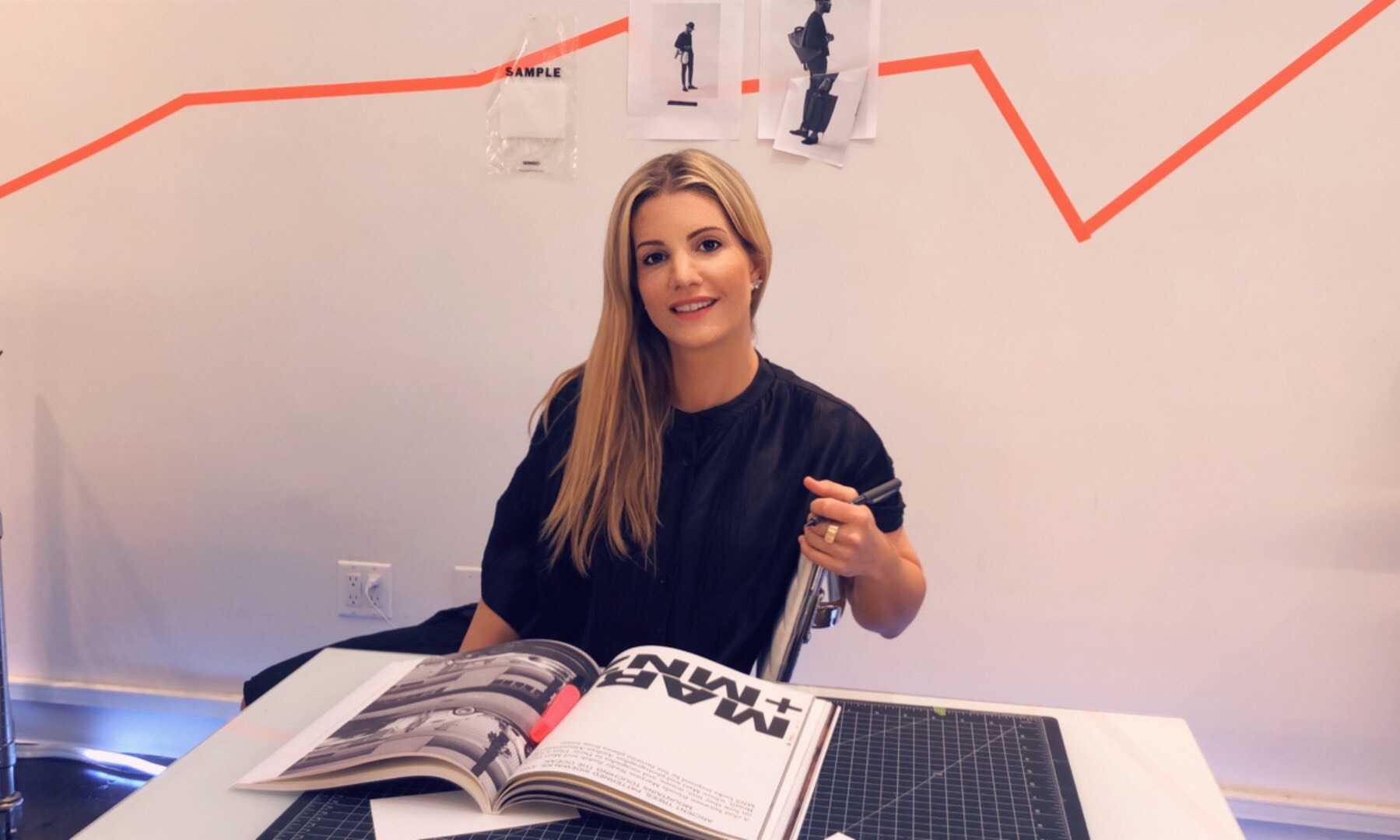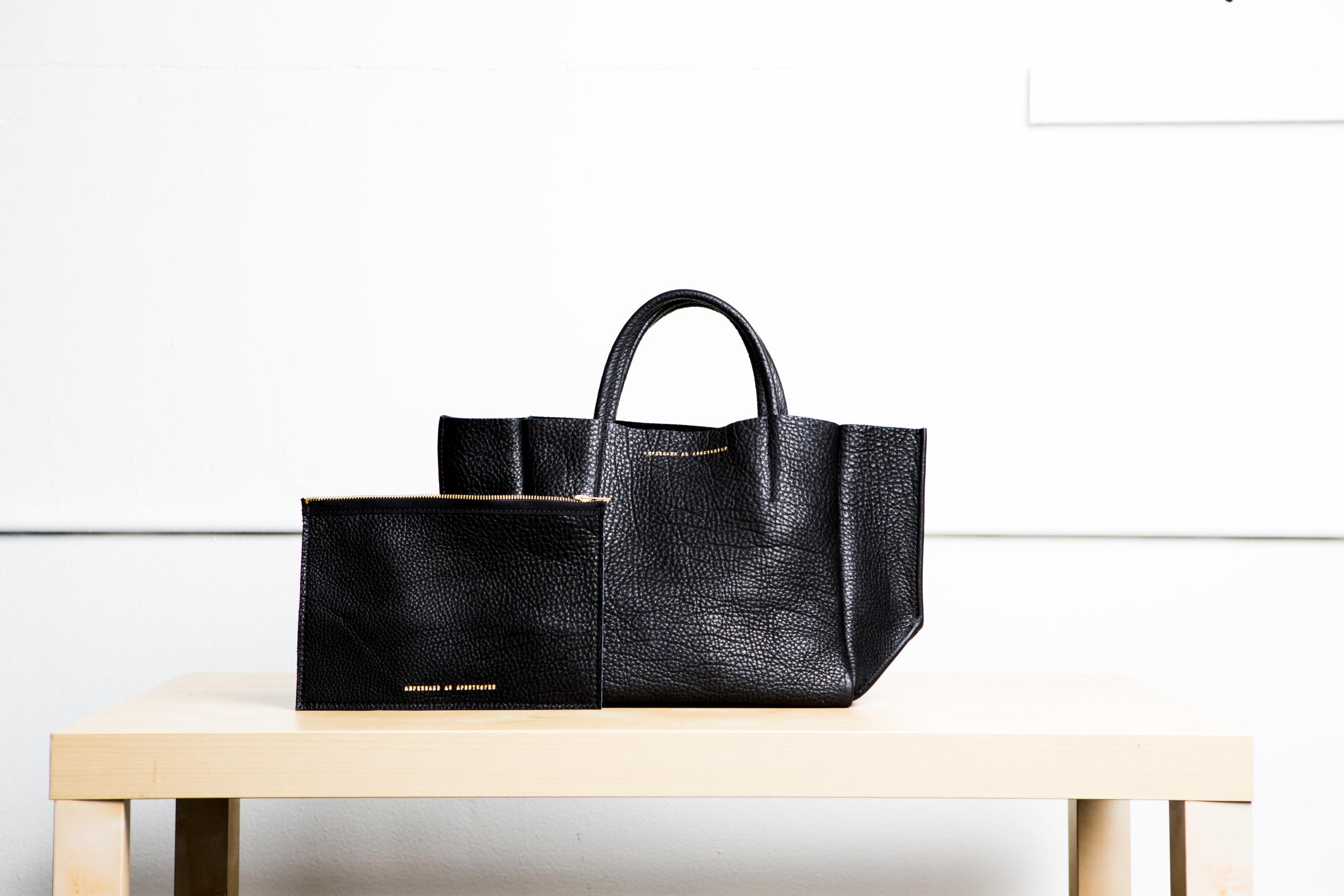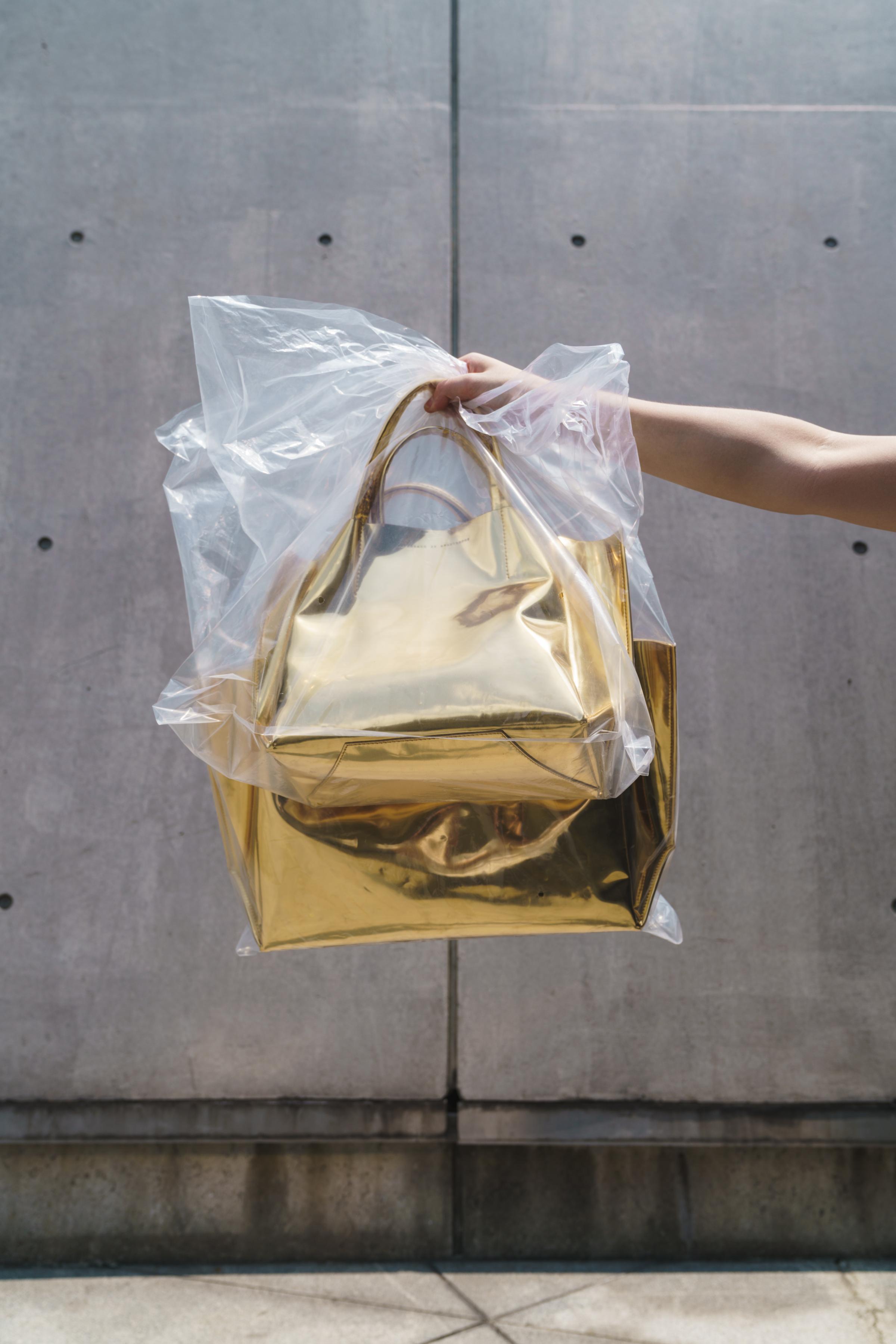
In The Boss, women share how they became successful and the lessons they learned along the way.
“Once you become a boss, you’ll never be able to work for anyone else again.”
I grew up hearing my dad say that over and over again, and it undoubtedly put me on the path that I’m on today. Ampersand As Apostrophe, my handbag company, wasn’t my original plan. I studied interior design at Miami University, and after graduation I was recruited to work for an architecture firm in Seattle. I was doing what I loved, and working on huge retail projects all over the world. I should have been happy, but I wasn’t. I was so passionate about design, structure and aesthetics, but I still felt unfulfilled. Almost every day I’d ask myself, “Am I supposed to be doing something else?”

After three and a half years, in 2010, I decided to take a break and visited some friends in New York. I’d saved about $800 for a new handbag, and after finding nothing in Seattle that I liked, I knew I’d probably have more luck in NYC — most likely at Barneys. I wanted something that was simple, with clean lines and a sophisticated structure, but nothing too stuffy or run-of-the-mill either. I also needed it to fit and flatter my body type — I’m petite, just a little over five feet tall — but I wasn’t willing to spend thousands on a luxury brand either. I found nothing. I was frustrated, and on the plane ride home I started to sketch what would become the first design in my line. It was just a marker doodle over the text on a magazine page, but when I got back to Seattle, I took my sketch and a 100-year-old mailbag that had been sitting in the trunk of my car for months to a sewing shop that repaired the sails on sailboats. There, I created the bag that changed my life.

The fashion editor at Seattle Metropolitan magazine, Laura Cassidy, stopped me on the street and begged me to make one for her; four hours later I decided to start the brand. She wrote a beautiful, full-page feature for the launch, and Ampersand As Apostrophe started getting attention from fashion blogs all over the world. Executives from big-name brands started offering my jobs and celebrities were featured in magazines wearing my bags. Somehow, the organizers of Los Angeles Fashion Week decided to award me a booth. Orders started pouring in, but in order to fund my manufacturing costs I made customers pre-pay for their bags. During this time I was also maxing out my credit cards, paying them off, and then maxing them out again. I bought leather hides instead of dinner; that’s how determined I was.
I didn’t know the first thing about fashion in the technical or formal sense, and I didn’t know how to run a business. Every time someone told me I couldn’t do it, I tried harder. I was 26 years old when I entered the cutthroat world of fashion and manufacturing. The men who owned and managed the factories where I eventually started producing my bags didn’t always take me seriously. “They won’t listen to me. They don’t believe I’m the boss, and they think there has to be a man running the company,” I remember telling my dad. “So, invent him,” my father replied bluntly. And so I did.
Talking things over with my dad and hearing his straightforward and tough-love advice was essential for me.
When problems arose at the factories, as they always do, I’d tell them that I was going to call my “boss” and that “he won’t be happy about this.” Instead, I’d call my dad, and he’d catch me up on family stuff back home in Michigan, while I’d scribble down notes on what needed to be done next to ensure the success of my company.
When you’ve got hundreds of thousands of dollars on the line, and your financial security is on the line, you do whatever you have to do to make things happen. In the long run, I knew it would all be temporary. Sometimes I think of myself as more of a professional risk taker than a fashion designer or entrepreneur, and gaining that confidence was always the hardest part of starting my own business. Talking things over with my dad and hearing his straightforward and tough-love advice was essential for me.
Still, running a company was hard. In fact, after so many difficult production runs and the challenges of running a business on my own, I was about to give up altogether until I got a call from Bobbi Brown — the professional makeup artist and entrepreneur — one day. There she was on the other end of the line, saying, “Hi, Jessica? It’s Bobbi Brown. I’m your biggest fan.” Soon, she was placing orders that were 60 times larger than any I had received up until that point. I felt a sigh of relief and felt like this is really going to work. All of my emotions around failure started to dissipate. Brown’s belief in my brand was the confidence boost that I needed to keep going.
[Persistence is] the number one trait that’s essential to success, more so than talent, money or luck.
At the end of 2016, I moved Ampersand As Apostrophe to New York City. We were doubling our sales every season and I knew that if I wanted to grow and challenge myself even more, I’d have to be in the fashion capital of the U.S. Today, we sell globally to boutiques around the world, with showrooms in Los Angeles and Manhattan. I have three full-time employees in my design studio and we work with over a dozen consultants on a daily basis. My team and I are a small group of hardworking, driven women who are looking forward to the future of Ampersand As Apostrophe.
Persistence is another characteristic that my dad drilled into me over and over again growing up. It’s the number one trait that’s essential to success, more so than talent, money or luck. My greatest accomplishment has been building this brand from the ground up. I really couldn’t imagine doing anything else with my life.
More Must-Reads From TIME
- The 100 Most Influential People of 2024
- Coco Gauff Is Playing for Herself Now
- Scenes From Pro-Palestinian Encampments Across U.S. Universities
- 6 Compliments That Land Every Time
- If You're Dating Right Now , You're Brave: Column
- The AI That Could Heal a Divided Internet
- Fallout Is a Brilliant Model for the Future of Video Game Adaptations
- Want Weekly Recs on What to Watch, Read, and More? Sign Up for Worth Your Time
Contact us at letters@time.com